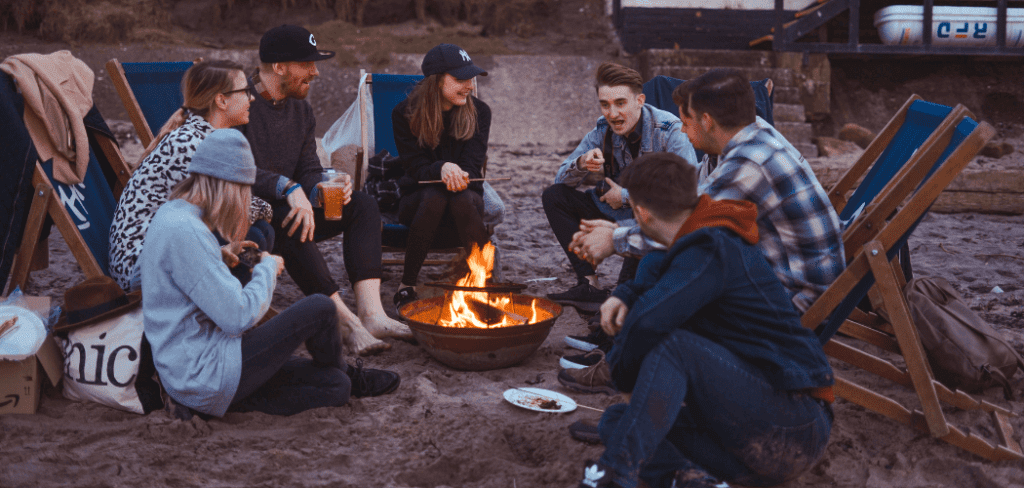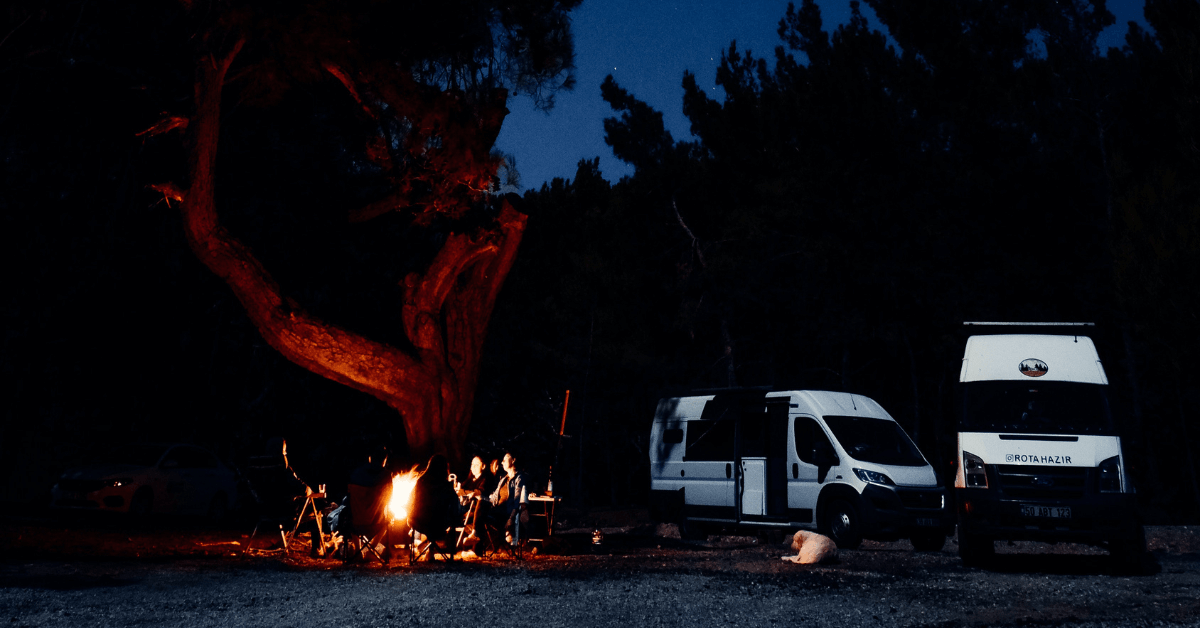Camping is a beloved pastime in the United States, drawing millions of people each year to explore the country’s natural wonders and disconnect from the hustle and bustle of modern life. From the towering peaks of the Rocky Mountains to the pristine beaches of the California coast, there is no shortage of breathtaking landscapes for outdoor enthusiasts to explore.
But is camping an American thing? While it’s true that camping has a rich history and deep cultural roots in the United States, it’s also a popular activity in many other countries around the world. From Europe to Asia to Australia, people everywhere are drawn to the simple pleasures of sleeping under the stars and communing with nature.
In this article, we’ll explore the origins and cultural significance of camping in the United States, as well as its current popularity and trends. We’ll also examine the reasons why camping is so beloved by Americans, and compare and contrast American camping culture with that of other countries.
So, buckle up and grab your camping gear, as we embark on a journey to discover if camping is truly an American thing!
Historical Perspective
Camping has a rich history in the United States, with roots dating back to the country’s early days. In the late 1800s and early 1900s, as America was becoming more industrialized, people began to yearn for a simpler way of life and a deeper connection to nature. This desire gave rise to the “back-to-nature” movement, which promoted outdoor recreation as a way to escape the stresses of modern life and rejuvenate the spirit.
One of the most significant events in the history of camping in the United States was the establishment of the National Park System. In 1916, President Woodrow Wilson signed the Organic Act, which created the National Park Service and set aside several areas of public land for preservation and recreation.
This paved the way for the development of campgrounds and other recreational facilities in national parks across the country and helped to make camping more accessible to Americans of all backgrounds.
Another major influence on camping culture in America was the rise of the automobile in the early 1900s. As cars became more affordable and widespread, people were able to travel further and more easily, and camping became a popular way to explore the country. Car camping, which involves driving to a campsite and setting up a tent or other temporary shelter, became a staple of American camping culture in the mid-20th century.
Cultural events also played a significant role in popularizing camping in America. The Woodstock festival, held in upstate New York in 1969, is perhaps the most iconic example of this.
The event drew hundreds of thousands of young people who camped out on the festival grounds and helped to cement camping as a symbol of counterculture and free-spiritedness.
Today, camping remains a beloved pastime in the United States, with millions of Americans hitting the great outdoors each year to enjoy the natural beauty and tranquility of the country’s many parks and wilderness areas.
Whether you prefer tent camping, RV camping, or something in between, there’s no denying the deep cultural roots and historical significance of camping in America.
Camping in America Today
As already noted, camping continues to be a popular pastime in the United States, with millions of Americans heading out to explore the great outdoors each year. According to a 2019 survey by the Outdoor Industry Association, 45 million Americans went camping in 2018, with 68% of them staying in tents and 32% in RVs or other vehicles.
The same survey found that camping is most popular among younger generations, with 64% of millennials saying they went camping in the past year.
One of the reasons camping remains so popular in America is the country’s vast and diverse array of natural landscapes. From the Rocky Mountains to the Florida Everglades, there is no shortage of breathtaking scenery for campers to explore.
Many campgrounds in the United States are situated in national parks, which offer a wide range of outdoor activities such as hiking, fishing, and kayaking. Additionally, camping is a relatively affordable way to travel and explore, making it accessible to a wide range of people.
Another factor contributing to the popularity of camping in America is the sense of community and camaraderie that often develops among campers. Many campgrounds offer group activities such as bonfires, potlucks, and outdoor games, providing opportunities for campers to meet and connect with others who share their love of the outdoors.
This sense of community is especially important for younger generations, who are increasingly seeking social experiences that are both meaningful and authentic.
In recent years, technology has also played a role in shaping the camping experience in America. While some purists may prefer to completely disconnect while camping, many campers now bring along smartphones, tablets, and other devices to stay connected with the outside world. This has led to the development of “glamping” (glamorous camping) sites that offer luxurious amenities such as Wi-Fi, air conditioning, and even spa treatments.
Despite these changes, however, the core of camping culture in America remains focused on getting back to nature and enjoying the simple pleasures of the great outdoors. Whether you’re pitching a tent in a remote wilderness area or parking your RV in a crowded campground, camping in America offers a unique and unforgettable experience for outdoor enthusiasts of all ages and backgrounds.
Next, we’ll explore the reasons why Americans are so enamored with camping and what makes it such a beloved pastime in the United States.
Why Do Americans Like Camping?
There are many reasons why camping has become such a beloved pastime in America. Here are a few of the most common:
1. Getting back to nature

Many Americans lead busy, fast-paced lives that are often disconnected from nature. Camping provides an opportunity to slow down, unplug from technology, and reconnect with the natural world. This is especially important for those who live in urban areas and may not have access to green spaces on a regular basis.
2. Escaping the daily grind
Camping offers a chance to leave behind the stresses of work, school, and other obligations and simply enjoy the present moment. Whether it’s sitting around a campfire with friends or family, hiking through a scenic trail, or simply taking in the quiet of the wilderness, camping provides a much-needed escape from the daily grind.
3. Building community
As mentioned earlier, camping can be a social activity that brings people together. This is especially true for younger generations who are looking for meaningful and authentic experiences with others.
Camping provides an opportunity to bond over shared experiences, such as cooking over an open fire, exploring a new trail, or simply enjoying the beauty of the natural world together.
4. Affordability
Camping is often a more affordable way to travel and explore than other forms of vacationing. While there are certainly options for luxurious camping experiences (such as glamping), many campgrounds offer affordable rates for tent and RV sites. This makes it accessible to a wide range of people, regardless of their income level.
5. Tradition
Camping has a long history in American culture, dating back to the days of pioneers and settlers. For many families, camping has become a tradition that is passed down from generation to generation. It offers a chance to create lasting memories and connect with the past in a meaningful way.
6. Adventure
Finally, camping is simply an adventurous and exciting way to explore the great outdoors. From encountering wildlife to discovering new hiking trails, camping offers a sense of thrill and excitement that is hard to replicate in other settings.
Overall, there are many reasons why camping has become such an integral part of American culture. Whether it’s the opportunity to escape the daily grind, connect with nature, build community, or simply enjoy a sense of adventure, camping offers something for everyone.
Is Camping Unique to America?
While camping is often associated with American culture, it’s certainly not unique to the United States. In fact, camping is a popular activity enjoyed by people all around the world and has a rich history that spans centuries and continents.
Here are a few examples of how camping is enjoyed in other countries:
1. Europe
Camping is a popular way to travel throughout Europe, especially in countries like France, Spain, and Italy. Europeans often camp in small, family-run campgrounds or stay in large, organized campgrounds with facilities and amenities.
Many Europeans prefer to camp in tents or caravans, but camping cabins and glamping options are also becoming more popular.
2. Australia
Camping is a way of life in Australia, where the vast and rugged landscape offers plenty of opportunities for outdoor adventure. Australians often camp in remote, wilderness areas or in national parks with basic facilities.
Camping in Australia often involves driving long distances to get to the camping site and setting up camp in a remote, unpopulated area.
3. Africa
Safari-style camping is a popular way to experience the wildlife and natural beauty of Africa. This type of camping often involves sleeping in tents or lodges while on a guided tour of national parks and game reserves.
The camping experience in Africa is often more luxurious than traditional camping, with some safari tours offering private tents, hot showers, and gourmet meals.
4. Asia
Camping is becoming increasingly popular in Asia, particularly in countries like Japan, South Korea, and China. Many Asian countries offer well-organized and well-maintained campgrounds with amenities like hot showers, laundry facilities, and playgrounds for children.
In Japan, camping often involves sleeping in small, minimalist cabins rather than tents, while in South Korea, glamping options are becoming more popular.
5. South America
Camping is a popular way to explore the natural beauty of South America, with many campgrounds located in national parks and other wilderness areas. Campers can enjoy everything from rainforests to mountains to beaches.
In countries like Chile and Argentina, camping is often combined with hiking, with many campgrounds situated along popular trekking routes.
While camping is enjoyed in many countries around the world, each country has its own unique approach and style. At the same time, though, the universal appeal of camping as a way to connect with nature and enjoy the great outdoors is something that people all over the world can relate to.
Is Camping an American Thing? – Final Thoughts
While camping is often associated with American culture, it’s not unique to America. Camping is enjoyed by people all around the world and has a rich history that spans centuries and continents.
In America, camping has a rich history that spans centuries and has been shaped by the unique geography, culture, and values of the country. Today, camping is a thriving industry that offers a wide range of options for outdoor enthusiasts, from primitive campsites to luxury glamping experiences.
So why do Americans love camping? There’s no one answer to this question, but it’s clear that camping provides an escape from the stress and chaos of everyday life and allows people to slow down, unplug, and appreciate the simple pleasures of being in nature.
